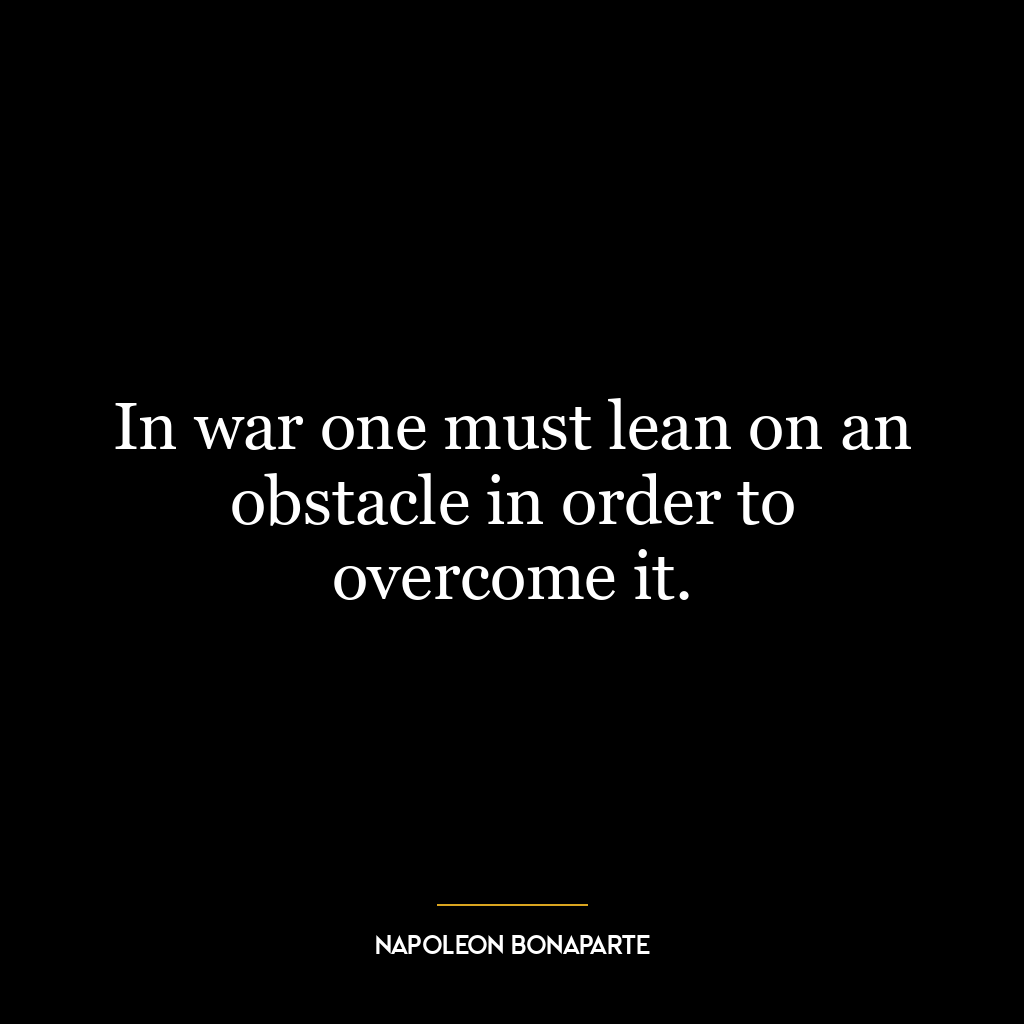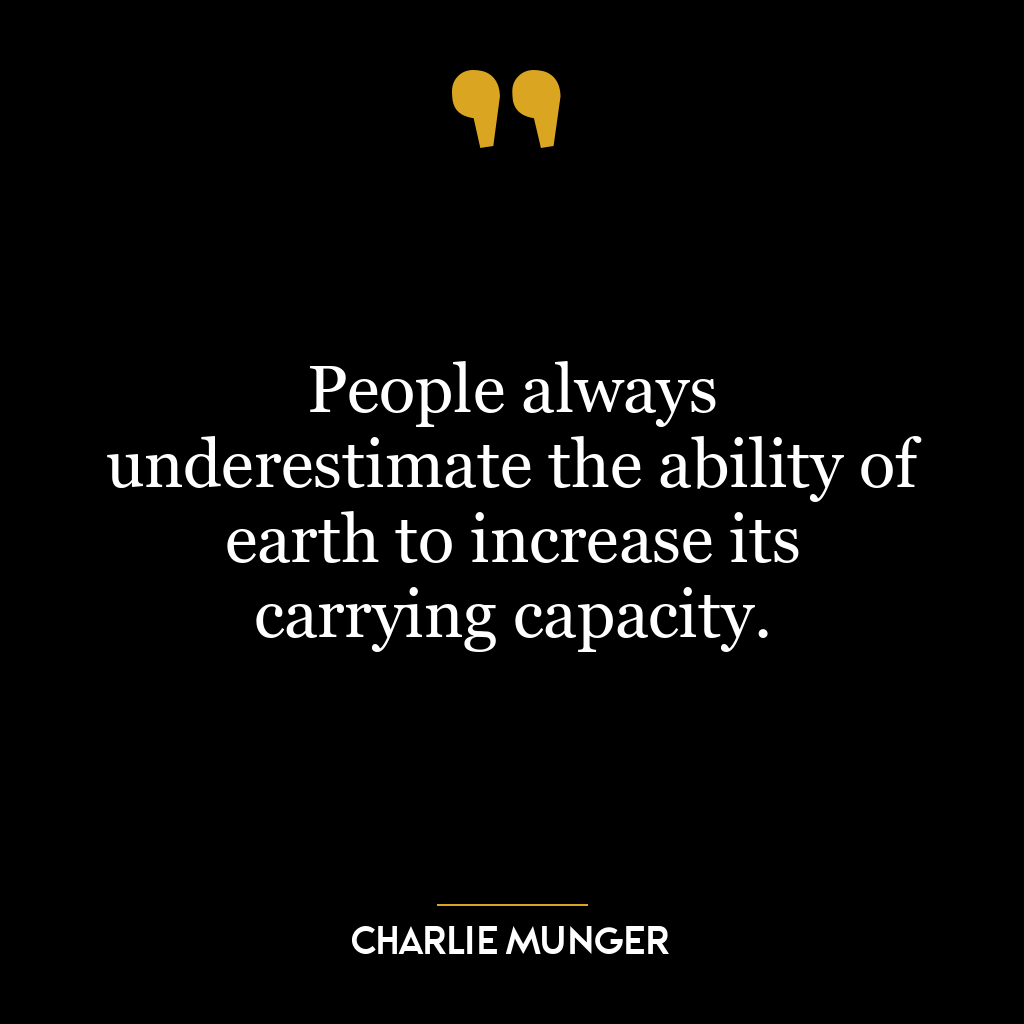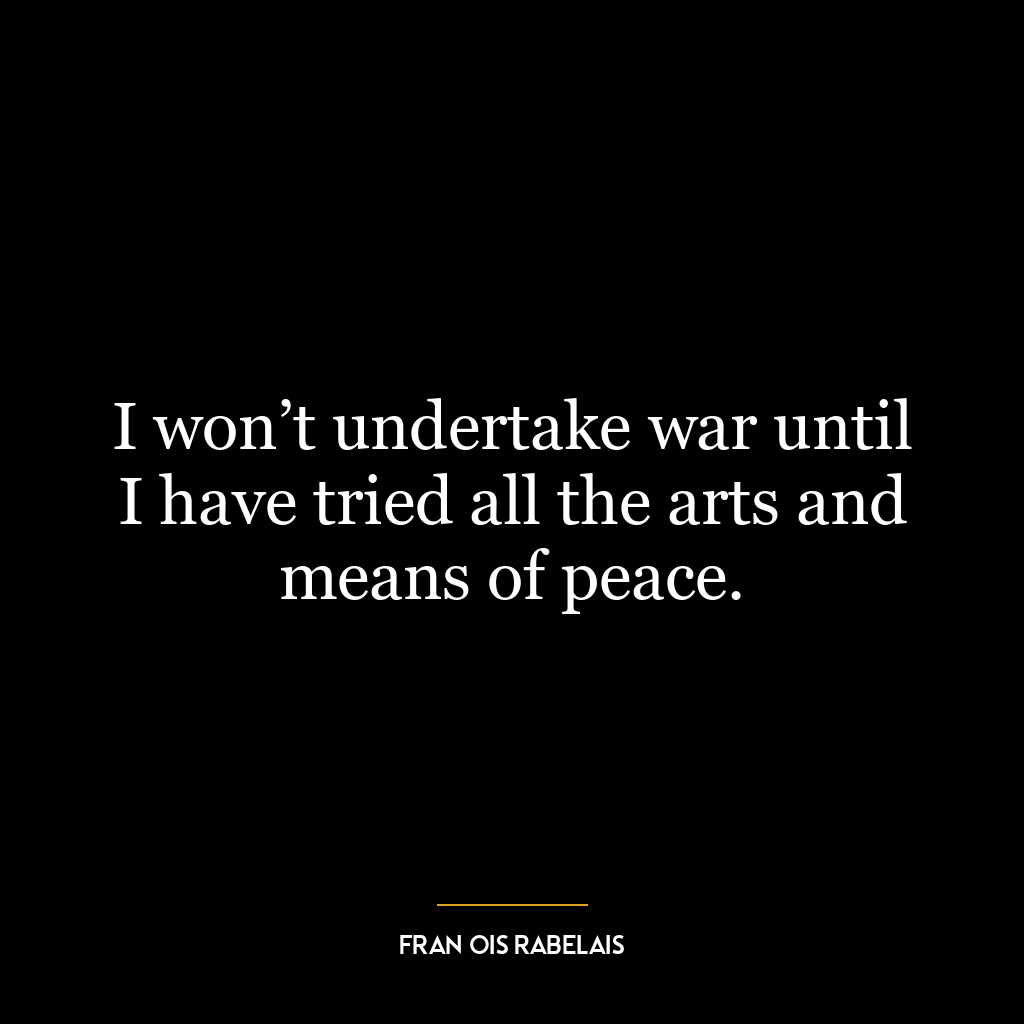In war one must lean on an obstacle in order to overcome it.
The quote, “In war one must lean on an obstacle in order to overcome it,” is a profound statement that underscores the importance of confronting challenges head-on. It suggests that obstacles are not merely hindrances to be avoided, but rather tools that can be used to propel oneself forward. This concept is often referred to as “leveraging adversity”, where the very challenges that stand in our path can be used as stepping stones to success.
In the context of war, this could mean using the enemy’s strength against them, or turning a disadvantageous terrain into a strategic advantage. It’s about using the obstacle, not just overcoming it. This requires a shift in perspective, turning the obstacle from an adversary into an ally.
This principle is not confined to warfare. It is equally applicable in today’s world and in personal development. For instance, in business, companies often face obstacles such as market saturation, stiff competition, or economic downturns. By leaning on these obstacles, they can identify new opportunities for innovation, diversification, and growth. A saturated market might push a company to develop a unique product or service, while economic downturns might encourage cost-saving innovations.
In personal development, individuals often face challenges such as failure, rejection, or hardship. Rather than being deterred by these obstacles, individuals can use them as learning opportunities, gaining resilience and wisdom in the process. Failure can teach us what doesn’t work and push us to find what does. Rejection can make us re-evaluate our approach and improve. Hardship can build our resilience and make us stronger.
In summary, the quote encourages us to change our perspective towards obstacles. Instead of viewing them as barriers to our success, we should see them as opportunities for growth and advancement. It’s not about avoiding or simply overcoming obstacles, but about using them to our advantage.














